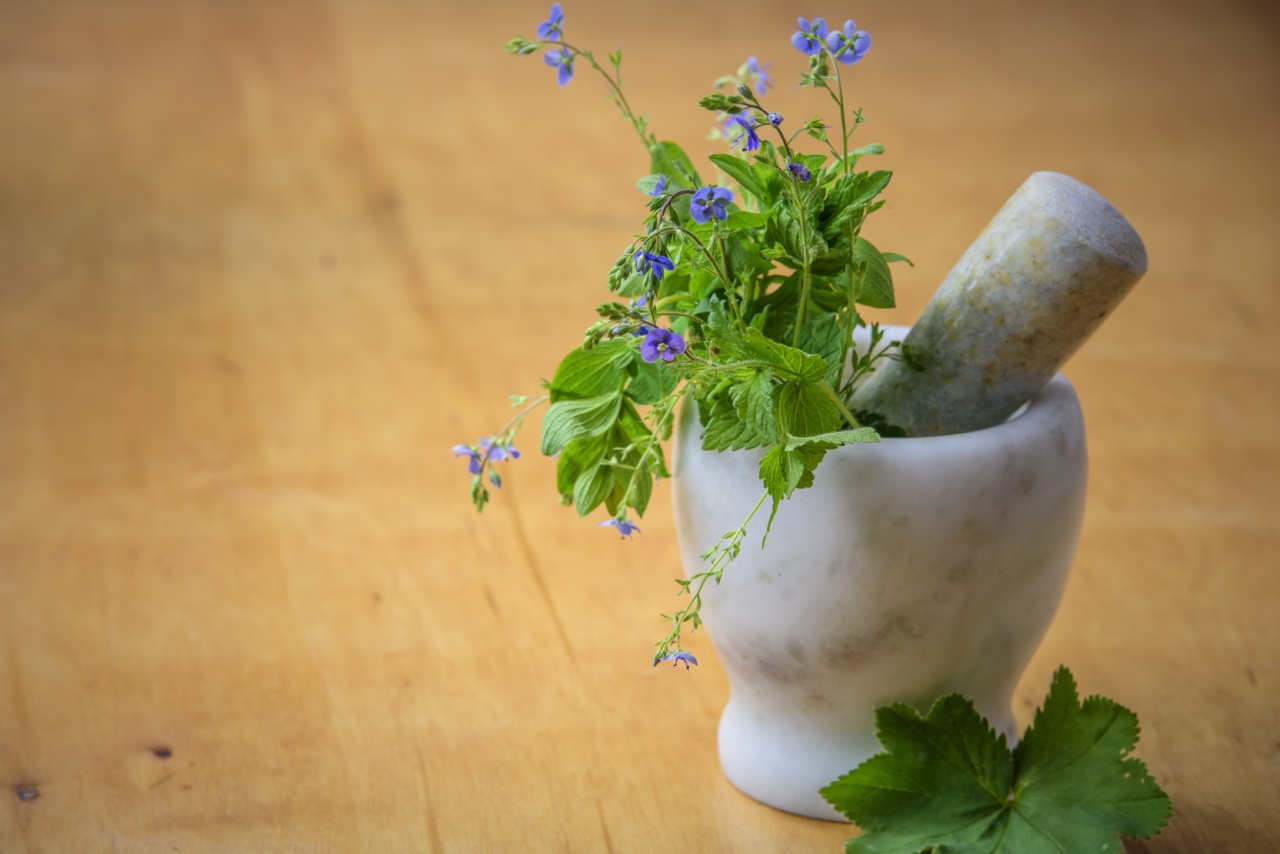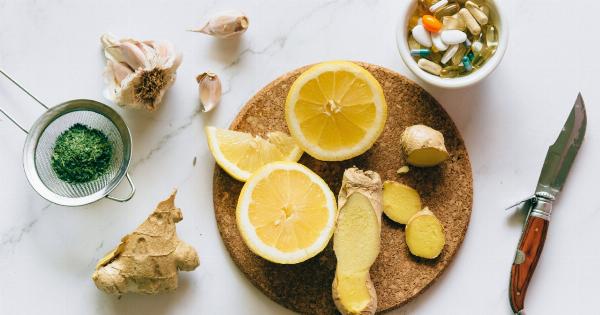Herbs have been used for centuries not only to add flavor and aroma to our dishes but also to boost our overall health and well-being.
These amazing plants are packed with essential nutrients, antioxidants, and phytochemicals that can enhance the taste of our food and provide numerous health benefits. Whether you are a passionate chef or a health-conscious individual, incorporating nourishing herbs into your cooking can add an extra layer of depth to your dishes while improving your overall wellness.
The Health Benefits of Culinary Herbs
1. Basil: This versatile herb not only adds a burst of fresh flavor to a variety of dishes but also contains compounds with anti-inflammatory and antibacterial properties.
Basil is also rich in vitamin K, which plays a crucial role in bone health.
2. Thyme: Known for its aromatic and earthy flavor, thyme has long been used in culinary and medicinal practices. It is a rich source of antioxidants and has antimicrobial properties that can support respiratory health.
3. Oregano: Often associated with Italian cuisine, oregano is a potent herb with antimicrobial and anti-inflammatory properties. It contains compounds such as carvacrol and thymol, which have been shown to have antimicrobial effects.
4. Rosemary: With its distinct pine-like fragrance, rosemary is a flavorful herb that is often used in roasted meats and vegetables. It is rich in antioxidants and has been linked to improved digestion and brain health.
5. Parsley: This popular herb is not only great for garnishing but also offers a range of health benefits. Parsley is an excellent source of vitamins A, C, and K, as well as folate and iron.
6. Cilantro: Loved by many for its bright and fresh taste, cilantro is a rich source of antioxidants and has been shown to help detoxify the body from heavy metals.
It also contains beneficial compounds that may have antibacterial properties.
7. Mint: The refreshing taste of mint makes it a popular choice for both sweet and savory dishes. It contains menthol, which can help soothe irritable bowel syndrome (IBS) symptoms and aid in digestion.
8. Dill: Often associated with pickles, dill has a unique flavor profile with both sweet and tangy notes. It is a good source of calcium and can help alleviate digestive issues such as indigestion and gas.
9. Chives: These slender green herbs are not only a delightful garnish but are also rich in vitamins A and C. Chives have antioxidant properties and may offer antimicrobial benefits as well.
10. Sage: Known for its distinct flavor, sage has been used in traditional medicine for its potential cognitive-enhancing properties. It is also a rich source of antioxidants that can support overall health.
How to Incorporate Nourishing Herbs into Your Cooking
Now that we have explored the incredible health benefits of culinary herbs, let’s discuss some creative ways to incorporate them into your cooking.
1. Fresh Herb Pesto
Create a delicious and nutritious pesto sauce by blending together fresh basil, garlic, pine nuts, Parmesan cheese, and olive oil. This vibrant sauce is fantastic on pasta, sandwiches, or as a dip.
2. Herb-Infused Oils
Make your own herb-infused oils by steeping your favorite herbs, such as rosemary or thyme, in olive oil. These flavorful oils can be used for salad dressings, marinades, or as a finishing touch to roasted vegetables.
3. Herbal Tea Blends
Experiment with different herbal tea blends by combining mint leaves, chamomile flowers, and lemon verbena. These comforting and aromatic teas can be enjoyed hot or cold.
4. Herb-Roasted Vegetables
Add an enticing flavor to roasted vegetables by tossing them in a mixture of olive oil, fresh herbs like oregano or sage, and a sprinkle of sea salt. Roast until golden and enjoy the enhanced taste.
5. Herb-Infused Butter
Elevate your cooking by blending chopped herbs like parsley or chives into softened butter. This herb-infused butter can be spread on bread, added to mashed potatoes, or used to top grilled meats.
6. Herb-Marinated Meats
Enhance the flavor of meats by marinating them in a mixture of herbs, garlic, lemon juice, and olive oil. This simple technique can elevate the taste of various proteins like chicken, beef, or fish.
7. Herbal Salad Dressings
Make your salads more exciting by whipping up your own herbal salad dressings. Combine herbs like dill, basil, and cilantro with olive oil, vinegar, and a touch of honey for a delightful dressing.
8. Herb-Infused Vinegars
Create your own herb-infused vinegar by steeping herbs like tarragon or thyme in apple cider vinegar or white wine vinegar. These flavorful vinegars can be used in dressings, marinades, or as a drizzle over salads.
9. Herb-Seasoned Popcorn
Add a twist to your movie nights by sprinkling dried herbs like rosemary or sage onto freshly popped popcorn. This savory and aromatic snack will surely be a hit.
10. Fresh Herb Salads
Combine a variety of fresh herbs like mint, parsley, and chives to create vibrant and refreshing salads. Toss them with cucumbers, tomatoes, and a light vinaigrette for a burst of flavor.
The Impact of Nourishing Herbs on Your Overall Health
By incorporating these nourishing herbs into your daily cooking, you can experience a multitude of health benefits.
The antioxidants and phytochemicals found in these herbs can help protect your cells from damage caused by free radicals, thus reducing the risk of chronic diseases.
In addition, many herbs offer specific health benefits. Basil, for example, may help alleviate inflammation, while oregano has antimicrobial properties. Thyme can support respiratory health, and mint can aid digestion.
The vitamins and minerals found in herbs, such as vitamin K in basil and vitamin C in parsley, can contribute to overall well-being.
Aside from their culinary and health benefits, nourishing herbs can also elevate your dining experience. The delightful aromas and vibrant flavors they bring to your dishes can turn a simple meal into an extraordinary culinary adventure.
Embrace the Power of Nourishing Herbs
Take advantage of the remarkable benefits of nourishing herbs by incorporating them into your cooking and enjoying their incredible flavors. Experiment with different combinations and techniques to discover your favorite herb-infused creations.
Not only will your taste buds thank you, but your body will also reap the rewards of these nutrient-packed plants.





























